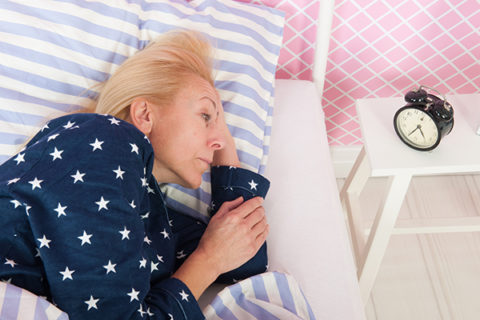August 14, 2017 by

It is a common problem for many older adults – falling and staying asleep for a full night’s rest. Apart from feeling a little foggy the next morning, however, as well as feeling the need for an afternoon snooze to catch up on lost sleep, the repercussions have felt marginal. That is, until research recently revealed a possible link between senior sleep disorders and Alzheimer’s disease.
Deep sleep allows the brain to remove harmful toxins, such as the amyloid plaques linked with Alzheimer’s disease, and it seems that a build-up of these toxins is shown to damage the brains of laboratory animals. Consequently, a human study is starting to better understand the interconnection and its impact.
Through the use of a powerful MRI system, the strength of the brain’s signal to get rid of toxins can be examined: a strong signal in brains whose toxin elimination is effective, and a weaker one in those who may be developing Alzheimer’s. The goal will be to see whether too little deep sleep does, actually, affect the likelihood of a future Alzheimer’s diagnosis, and if so, to determine the best treatment options to improve quality of sleep.
The challenge in the human leg of this trial will be in helping participants feel at ease enough in the MRI device to experience the natural phases of sleep, between the noise and confined and sometimes claustrophobia-inducing quarters. However, it’s a lot more achievable and less-intrusive option than the laboratory animal study, which involved developing a window in the skull and viewing the brain together with a strong microscope and laser. And the payoffs may potentially be life-changing: identifying people at risk for Alzheimer’s disease due to insufficient sleep, and opening doors to innovative treatment options.
Per Bill Rooney, director of Oregon Health & Science University’s Advanced Imaging Research Center, “It could be anything from having people exercise more regularly, or new drugs. A lot of the sleep aids don’t particularly focus on driving people to deep sleep stages.”
Financing for human trials is now in place, and the study is scheduled to begin this year.
Are you presently providing care for a senior loved one and finding it challenging to get a good night’s sleep? Or does your loved one struggle with sundowning or some other senior sleep disorders that make evening sleeping challenging for you both? Contact At Home Independent Living’s Syracuse caregiving services for overnight respite care, giving you the opportunity to sleep while knowing your loved one is safe and well cared for!
